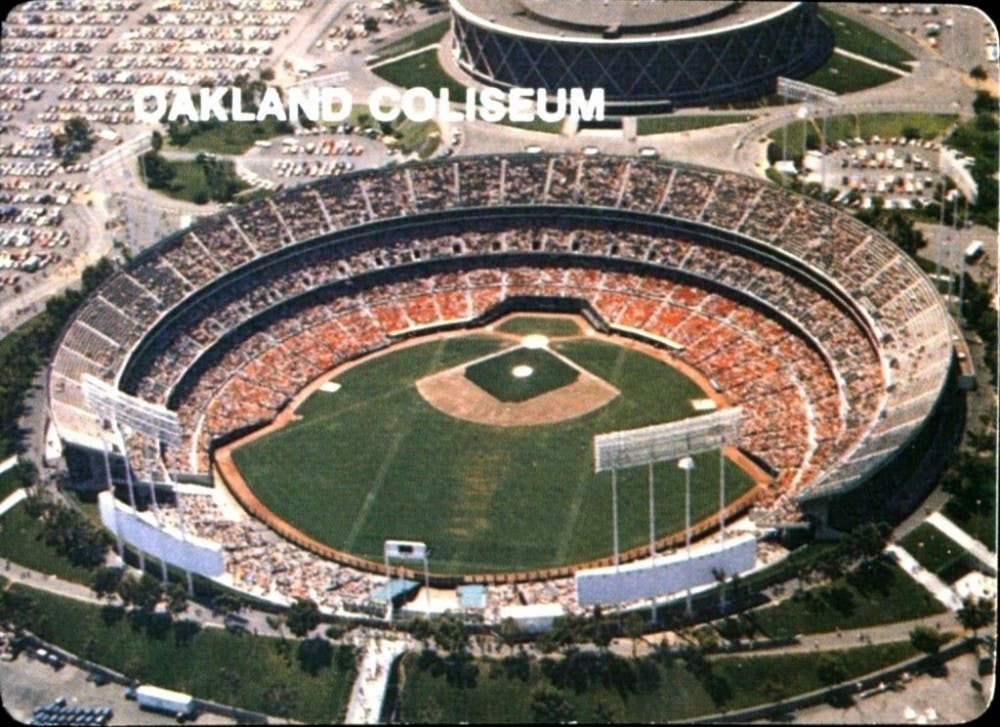Before the start of last season, the NFL announced that the St. Louis Rams would be leaving St. Louis and returning to Los Angeles immediately for the start of 2016. Furthermore, in January of this year, the San Diego Chargers ended a decade long stadium dispute when they announced they were moving in with the Rams.
All three of the moves were precipitated by one issue, quite simply the one issue that drives the League and the entirety of our society: money, specifically, the amount of public financing that each city would be willing to dish out to fund a new stadium. When the Raiders returned to Oakland in 1995, city taxpayers funded a $200 million dollar renovation project on the Oakland-Alameda County Coliseum.
Nevertheless, despite these renovations, Raiders owner Mark Davis quickly soured on the condition of the stadium and demanded that the cash-strapped city provide additional public financing for a new stadium.
Even though Oakland still owes $95 million on the Coliseum improvements, the Oakland City Council approved a last ditch proposal to keep the team in the Bay Area. The city agreed to provide $350 million in public financing for a 1.3 billion dollar stadium on the site of the existing Coliseum.
But it was already too late. The Raiders had reached agreement on the preliminary construction of a $1.9 billion stadium in Las Vegas, which includes an astounding $750 million in public revenue. Ultimately the NFL owners ruled that the Oakland counter proposal was inadequate.
The Silver and Black are departing the Bay Area for the second time, leaving behind thousands of loyal and devastated fans who have supported the team since its AFL days almost a half century ago.
Sports franchises are embedded within the culture and livelihood of a city. They are beacons of regional and statewide pride and a core aspect of a city’s identity. Many enter the fandom for their regional team on the day they are born. I was just days old when my first baby photo was taken, and I was already sporting my blue and red New York Giants bib.
Fandom defies rationality. We owe nothing to these teams, and deep down, we know that they do not care about us nearly as much as we can possibly care about them. There are millions of Giants fans in the New York metropolitan area.
If I turned off my TV, stopped buying jerseys and never went to another game in my life, the Giants would not miss me. These teams and their owners have proven what it is that they solely care about: profit. After all, the League is a business, and teams make business decisions.
By all means, the Raiders’ move is a slam dunk for the franchise; Las Vegas is a rapidly growing metropolis and has long been regarded as the entertainment capital of the world. But I feel for those fans.
These fans stood with the Raiders as they posted 14 straight losing seasons between 2003 and 2016. Oakland approved hundreds of millions of dollars for stadium improvements after the team had already packed up and abandoned them once again; abandoned the city that would do anything, even approve hundreds of millions of dollars in financing for a new stadium while still owing nearly $100 million on their last stadium deal, just to keep the Raiders in Oakland.
No differently, Las Vegas, that has 18 percent of residents living in poverty and continues to grapple with high unemployment, was willing to give a billionaire owner hundreds of millions of dollars.
Meanwhile, that money could be used to fund infrastructure improvements, schools and public parks.
These cities continue to display such a willingness to give wealthy franchise owners hundreds of millions because of promises that the projects will create jobs and bring in revenue.
Numerous studies have shown that this is blatantly false. Stanford economist Roger Noll concluded that NFL stadiums do not generate substantial economic growth, because they provide a small number of jobs relative to their cost and do not host many events per year.
As long as cities like Las Vegas are willing to spend hundreds of millions in taxpayer money for stadiums, small market cities will run the risk of losing their beloved teams. NFL owners would be foolish to decline the subsidies if they are offered to them, but our cities should realize that these billionaires are fully capable of footing a new stadium bill on their own.
My heart aches for Oakland, St. Louis and San Diego. Though Las Vegas now has a NFL team to call their own, what will the arrival of the Raiders cost the city and its residents?






